The Maine Coon is a magnificent and lovable giant of the cat world, renowned for its luxurious coat, friendly nature, and impressive size.
As one of the oldest natural cat breeds in North America, the Maine Coon is a perfect combination of beauty, intelligence, and charm, making it an ideal companion for families and cat enthusiasts alike.
Table of Contents
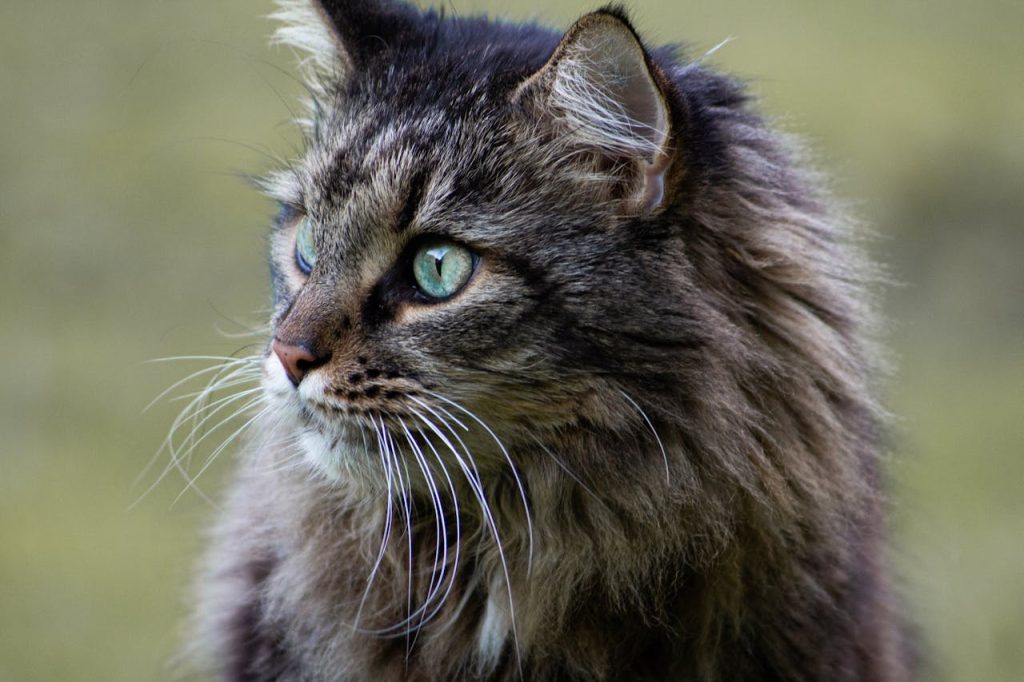
Introduction
The Maine Coon, often referred to as the “gentle giant” of the cat world, is a breed that captivates cat lovers worldwide with its remarkable size, lush coat, and affectionate personality.
Known for being one of the largest domesticated cat breeds, Maine Coons are adored not only for their majestic appearance but also for their playful and sociable nature. Whether you’re drawn to their tufted ears, bushy tails, or their dog-like loyalty, the Maine Coon is a breed like no other.
In this article, we’ll explore everything you need to know about the Maine Coon, from its fascinating history to tips on caring for this extraordinary cat.
Looking to discover why cats make incredible companions? Check out our article, Why Cats Are the Best Pets.
History and Origin
The history of the Maine Coon is shrouded in mystery and folklore. Believed to have originated in the northeastern United States, particularly Maine, this breed has been the state’s official cat since the 1980s.
One popular myth suggests that Maine Coons descended from long-haired cats brought to America by Viking explorers, blending with local shorthair breeds to create their distinctive look.
Another theory ties them to French noblewoman Marie Antoinette’s beloved cats, which were supposedly sent to America during her ill-fated escape plan.
Regardless of their true origin, Maine Coons became prized for their exceptional hunting skills, rugged coats, and ability to withstand harsh winters.
By the late 19th century, they were showcased at some of America’s earliest cat shows, solidifying their place as a beloved breed. Today, Maine Coons are one of the most popular breeds worldwide, celebrated for their fascinating history and endearing traits.
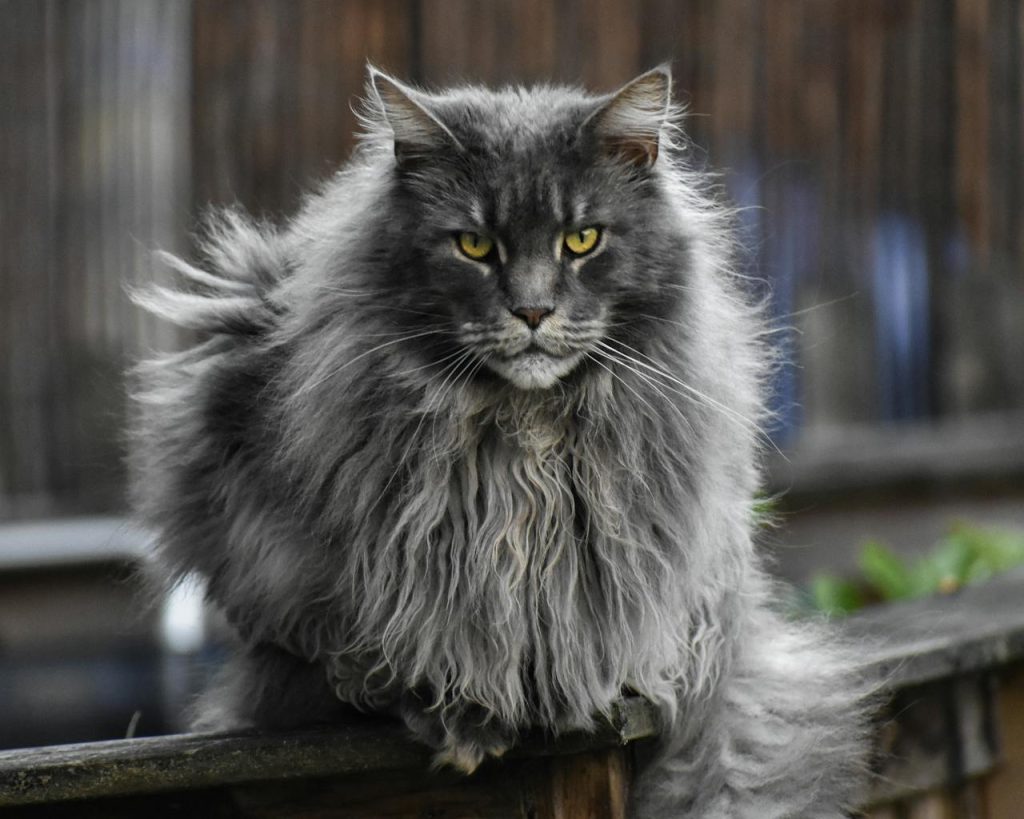
Why Were Maine Coons Created?
Unlike many breeds, Maine Coons weren’t deliberately created through selective breeding programs. Instead, they evolved naturally to adapt to the challenging climates of Maine.
Their thick, water-resistant coats, tufted paws, and bushy tails are evolutionary adaptations that helped them survive snowy winters. Additionally, their impressive size and agility made them exceptional hunters, capable of keeping farms and households free of rodents.
These traits not only ensured their survival but also made them indispensable companions to early settlers.
Physical Characteristics
The Maine Coon’s physical traits are nothing short of spectacular. These cats are known for their large, muscular bodies, with males typically weighing between 13 and 18 pounds and females averaging 8 to 12 pounds.
Some Maine Coons can grow even larger, with the record-holding cat stretching over 48 inches from nose to tail!
Their semi-longhaired coats come in a wide variety of colors and patterns, including classic tabby, solid black, calico, and more. The breed’s distinctive features include tufted ears that resemble a lynx, large expressive eyes that can be green, gold, or copper, and a long, bushy tail often likened to a raccoon’s.
These physical attributes, combined with their graceful yet powerful demeanor, make the Maine Coon truly unforgettable.
For a comparison of different cat breeds, check out our article on Domestic Shorthair Cats and Why Persian Cats Are the Epitome of Elegance and Affection.
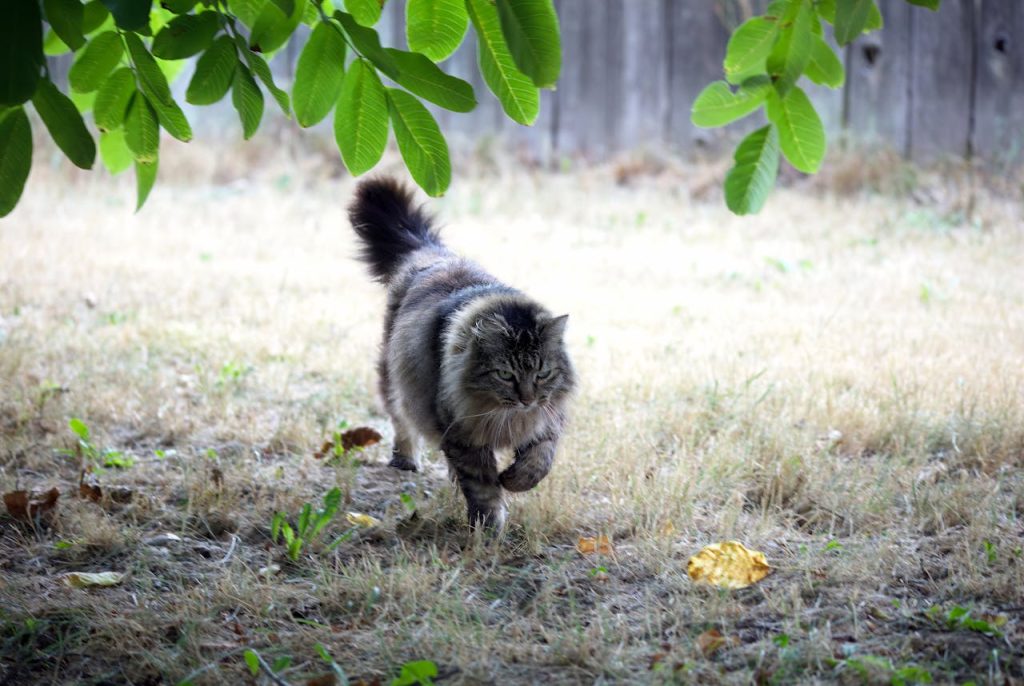
Temperament and Personality
Maine Coons are renowned for their friendly, gentle, and sociable personalities. Often described as “dog-like,” these cats form strong bonds with their families and enjoy being involved in daily activities.
They are affectionate without being overly demanding, making them ideal companions for families with children or other pets.
Maine Coons are known for their playful and curious nature, often engaging in interactive games like fetch. Many owners have shared stories of their Maine Coons following them from room to room, eager to “help” with chores or simply keep them company.
Their adaptable and easygoing temperament ensures they thrive in various households, whether bustling or quiet.
Choosing the Right Maine Coon Kitten
When selecting a Maine Coon kitten, it’s essential to choose a reputable breeder or adoption center. Look for kittens that display the breed’s signature traits, such as a thick coat, tufted ears, and a playful demeanor.
Observe their behavior to ensure they are socialized and healthy. Bright eyes, a clean coat, and an active personality are signs of a well-cared-for kitten. Early socialization will help your Maine Coon grow into a confident and well-adjusted adult.
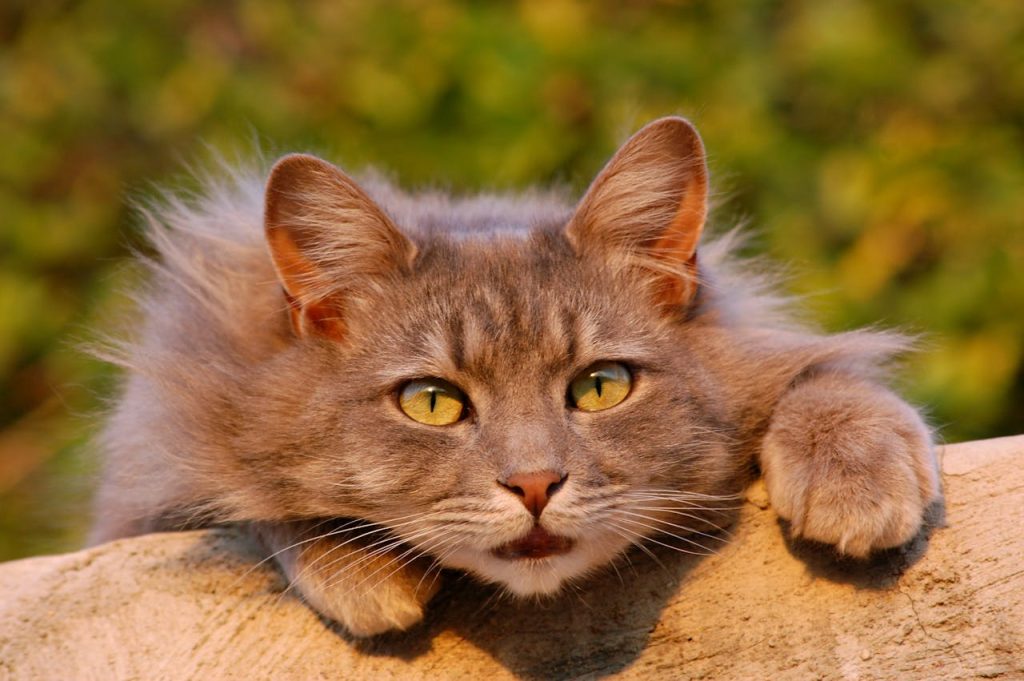
Intelligence and Training
Maine Coons are incredibly intelligent, making them highly trainable compared to many other cat breeds. They quickly learn tricks like sitting, fetching, and even walking on a leash.
Positive reinforcement methods, such as treats and praise, work wonders with these clever cats. Maine Coons also enjoy puzzle toys and interactive games that challenge their problem-solving skills, keeping their minds sharp and entertained.
Exercise and Energy Levels
Despite their large size, Maine Coons are surprisingly agile and active. They require regular physical activity to stay healthy and prevent obesity. Provide climbing trees, scratching posts, and plenty of interactive toys to satisfy their need for exercise.
Many Maine Coons enjoy chasing laser pointers, climbing shelves, or even exploring outdoor spaces under supervision. Their playful energy is well-balanced by periods of relaxation, where they’ll happily curl up beside their favorite human.
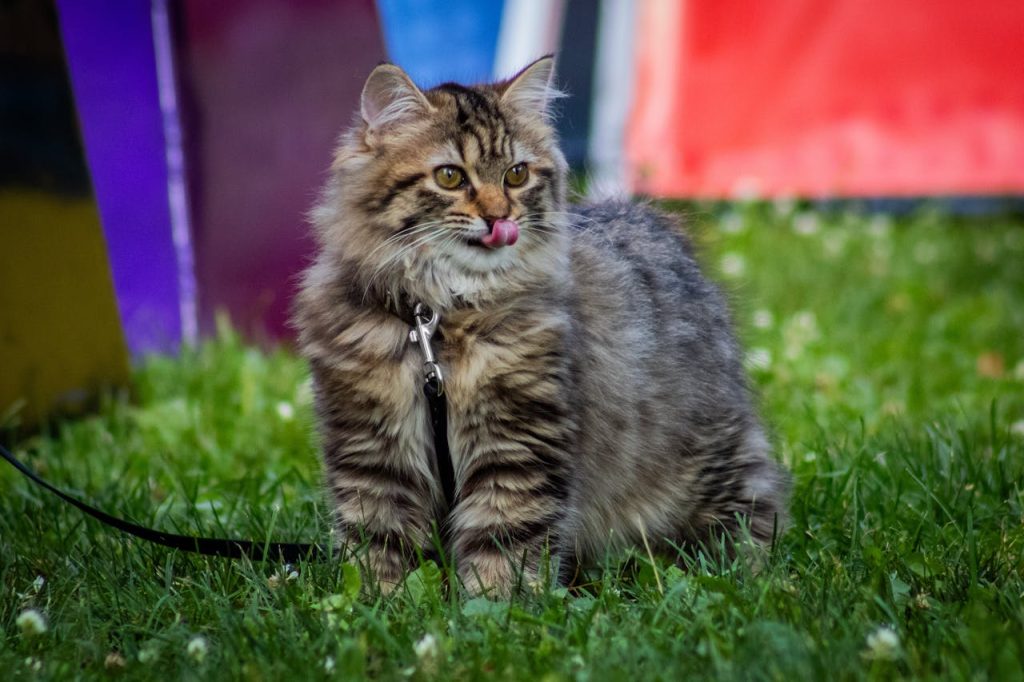
Diet and Nutrition
A Maine Coon’s diet should be tailored to support its large size and active lifestyle. High-quality cat food rich in protein is essential to maintain their muscle mass and overall health.
Wet food can be included to ensure adequate hydration, especially since Maine Coons are prone to kidney issues later in life. Feed them two to three balanced meals daily, adjusting portion sizes to prevent overeating.
Healthy treats like freeze-dried chicken can be offered in moderation.
Health and Lifespan
Maine Coons are generally robust cats with a lifespan of 12 to 15 years, although some live even longer with proper care. However, they are predisposed to certain health conditions, such as hypertrophic cardiomyopathy (HCM), hip dysplasia, and polycystic kidney disease (PKD).
Regular veterinary check-ups, a healthy diet, and adequate exercise can help manage these risks and ensure a long, happy life.
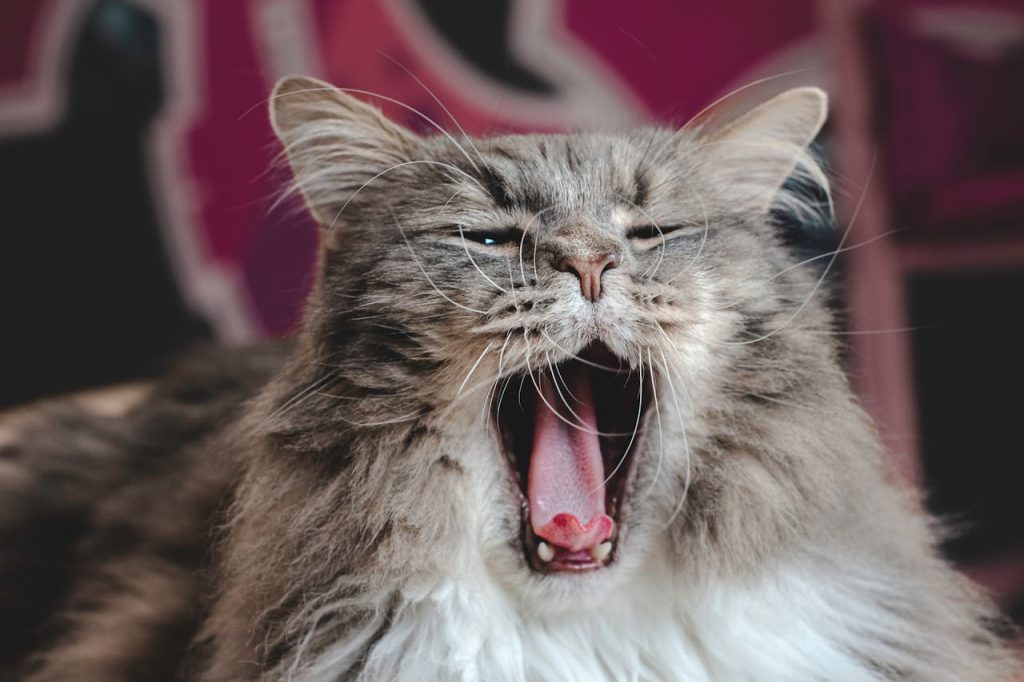
Grooming and Coat Care
Maine Coons require regular grooming to keep their thick, luxurious coats in top condition. Brush them two to three times a week using a stainless steel comb or slicker brush to remove tangles and prevent matting.
Pay special attention to the fur around their belly and legs, where knots are more likely to form. Regular grooming sessions also serve as bonding time and an opportunity to check for any skin issues or pests.
Fun Facts About Maine Coons
- Maine Coons are the largest domesticated cat breed.
- They have a unique chirping vocalization that many owners find endearing.
- Maine Coons often use their bushy tails as blankets to stay warm.
- Some Maine Coons have polydactylism, meaning they have extra toes.
- They were once nicknamed “the dogs of the cat world” for their loyal and playful behavior.
Challenges of Owning a Maine Coon
While Maine Coons are generally easygoing, their size and grooming needs can pose challenges. Their long coats require consistent maintenance, and their large appetites can make feeding more expensive than smaller breeds.
Additionally, their social nature means they dislike being left alone for long periods. Owners should be prepared to dedicate time and resources to meet these needs.
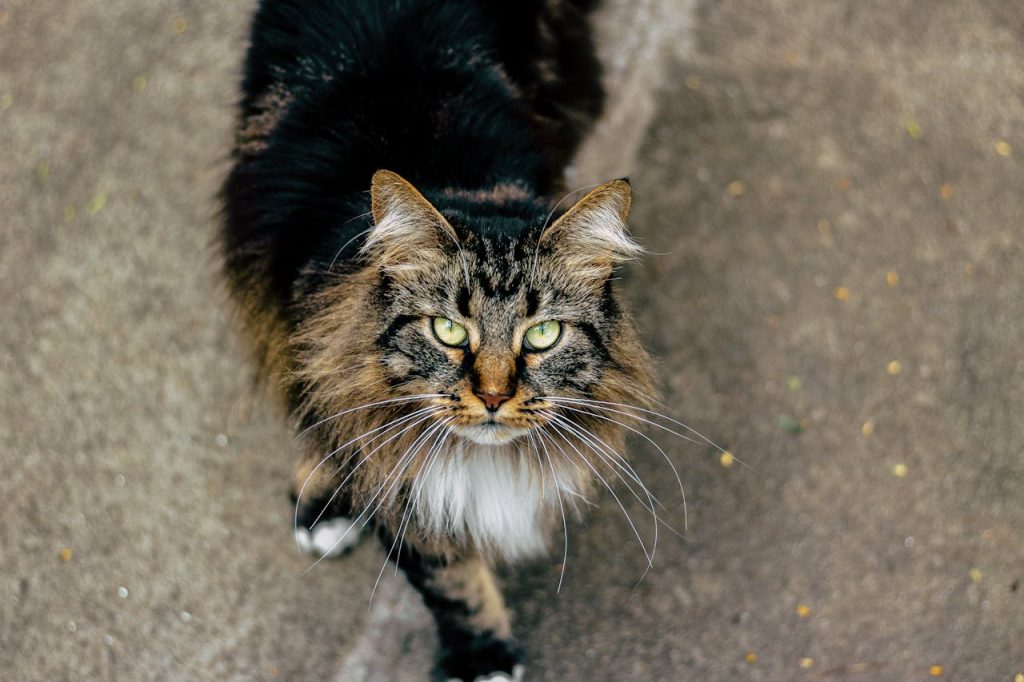
Tips for Maine Coon Owners
- Invest in sturdy cat trees and scratching posts to accommodate their size.
- Brush their coat regularly to prevent matting and shedding.
- Schedule annual veterinary visits to monitor their health.
- Provide interactive toys to keep their minds and bodies active.
- Ensure they have plenty of companionship to prevent loneliness.
Breeding and Reproduction
Maine Coon breeding should be approached responsibly to ensure the health and well-being of the kittens. Spaying or neutering your cat is crucial unless you are a professional breeder with experience and resources.
This helps control the pet population and reduces the risk of health issues, such as uterine infections in females or testicular cancer in males. Responsible breeding practices focus on screening for genetic conditions like HCM to produce healthy offspring.
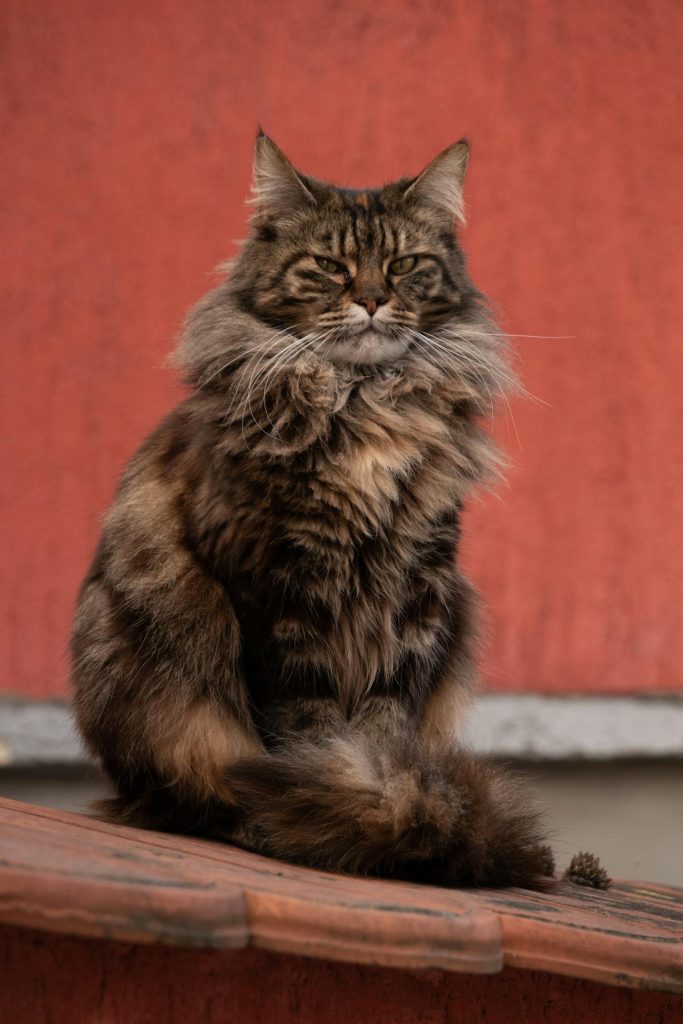
Final Thoughts on Maine Coons
Maine Coons are a remarkable breed that combines beauty, intelligence, and affection in one majestic package. Whether you’re drawn to their impressive size, playful nature, or dog-like loyalty, Maine Coons make wonderful companions for those willing to meet their unique needs.
Their rich history and endearing traits ensure they’ll remain a favorite among cat lovers for generations to come.
FAQs
What are the unique physical features of a Maine Coon?
Maine Coons are known for their large size, bushy tail, tufted ears, and thick, water-resistant coat, which helps them thrive in colder climates.
How do I choose the right Maine Coon kitten?
Look for a kitten from a reputable breeder or rescue, ensuring it has a healthy coat, clear eyes, and a playful yet friendly temperament.
Are Maine Coons easy to train?
Yes, Maine Coons are highly intelligent and can be trained to follow commands, perform tricks, and even walk on a leash with patience and positive reinforcement.
What kind of exercise does a Maine Coon need?
Maine Coons enjoy interactive play with toys, climbing on cat trees, and exploring. Regular activity helps keep them physically and mentally stimulated.
What is the typical lifespan of a Maine Coon?
Maine Coons usually live between 12 to 15 years with proper care, a balanced diet, and regular vet check-ups.


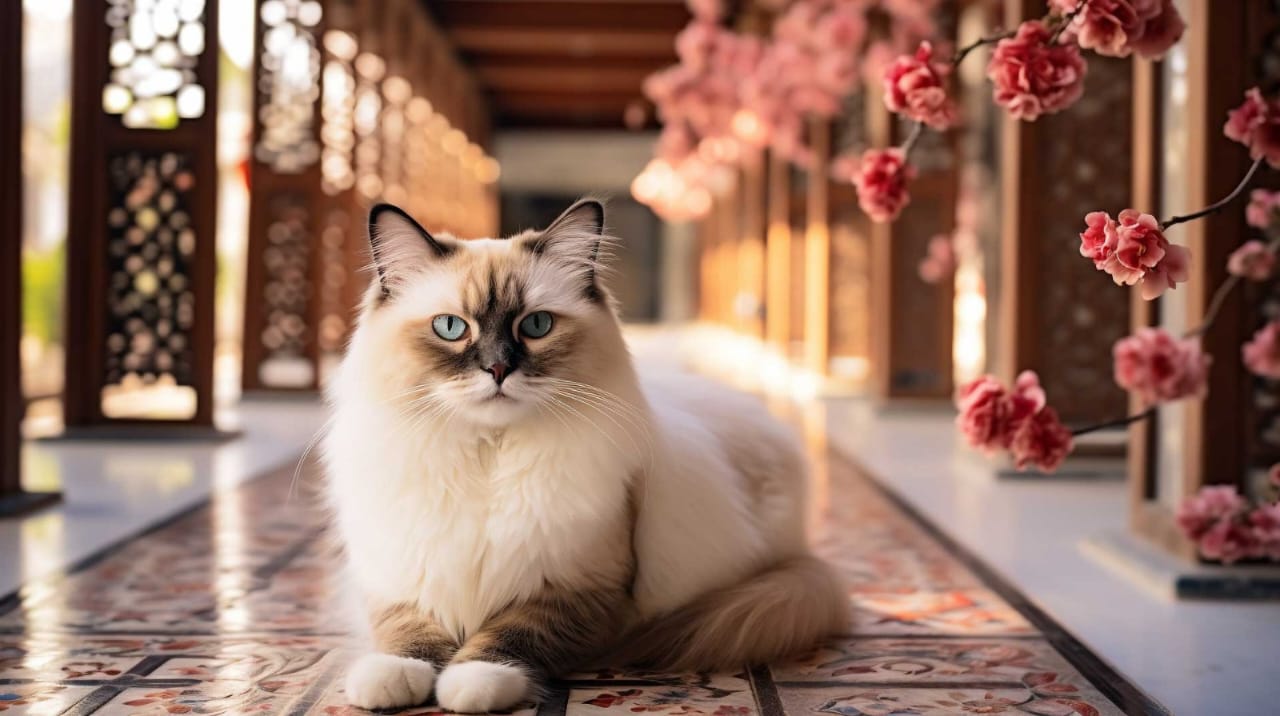
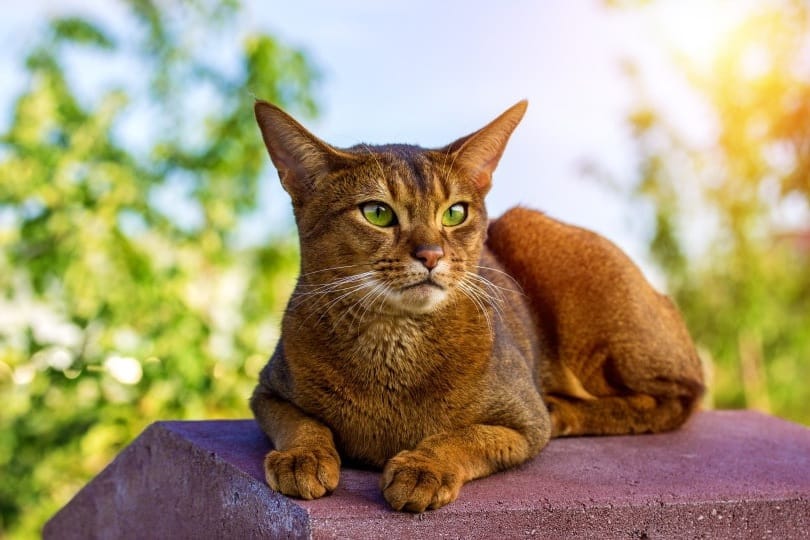
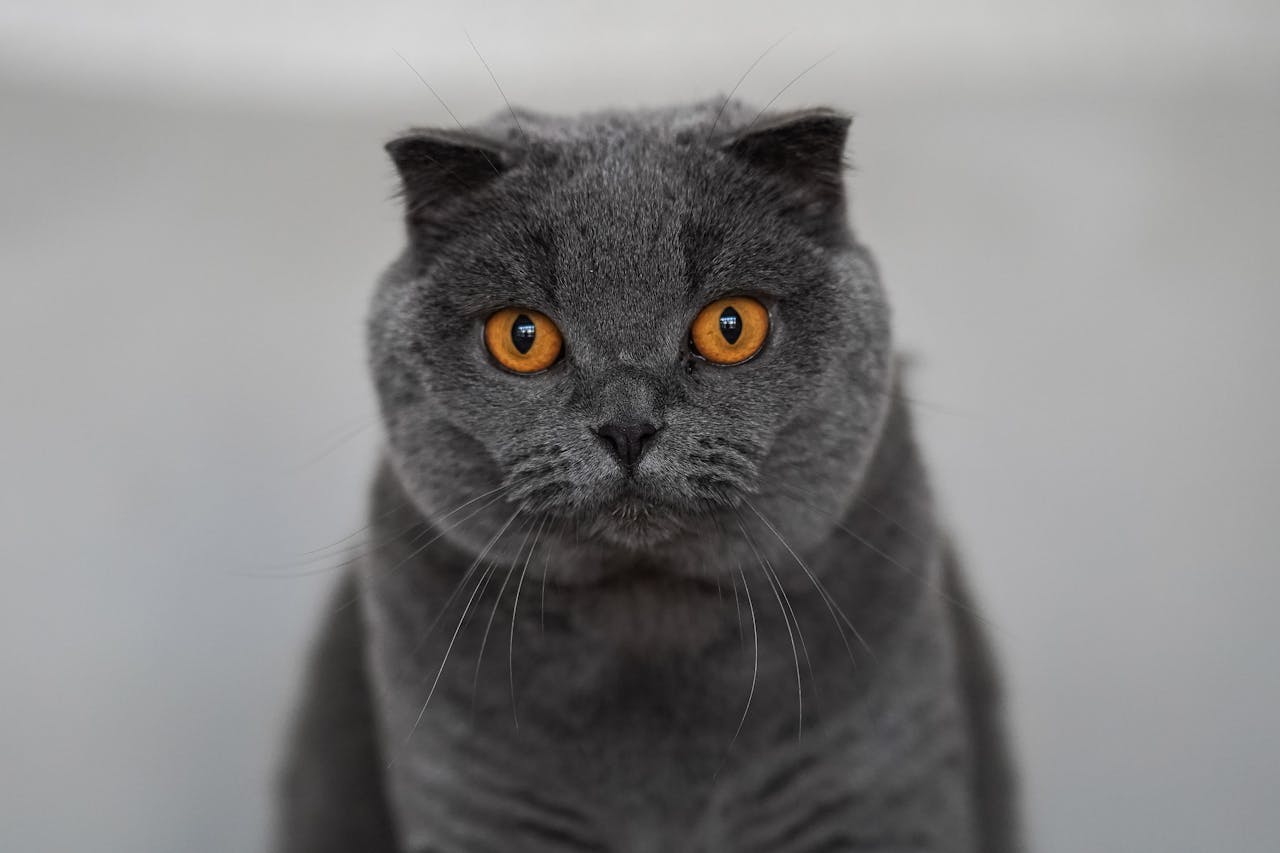
4 Comments
Pingback: Bengal Cats as Pets: Are They Right for You? - Pet Bonded
Pingback: Sphynx Cats Personality: Why These Hairless Cats Are So Affectionate - Pet Bonded
Pingback: British Shorthair: The Ultimate Guide to This Charming Cat Breed - Pet Bonded
Pingback: Siamese Cats Care Guide: Diet, Grooming & Health Tips - Pet Bonded